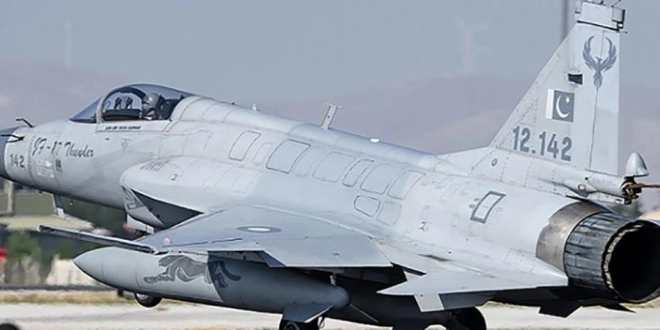In a retaliatory move, Pakistan’s air force launched airstrikes early Thursday in Iran, reportedly targeting militant hideouts. This action, which resulted in the deaths of at least nine individuals, has escalated tensions between the neighboring countries.
This exchange of hostilities, occurring on Tuesday and Thursday, seemingly aimed at two Baluch militant groups, both harboring separatist aspirations along the Iran-Pakistan border. Both nations have accused each other of harboring these groups on their respective soils.
The strikes have put a strain on diplomatic relations between Iran and Pakistan, countries that have long viewed each other with skepticism over militant attacks. These airstrikes also come at a time of regional unrest, including Israel’s conflict with Hamas in Gaza and Iran’s recent airstrikes in Iraq and Syria in retaliation for an Islamic State-claimed bombing.
Pakistan’s Foreign Ministry described Thursday’s strike as a series of coordinated precision military strikes, conducted based on credible intelligence of impending large-scale terrorist activities. They emphasized the strike as a testament to Pakistan’s commitment to defending its national security.
Pakistan’s interim Prime Minister Anwaarul-Haq-Kakar, attending the World Economic Forum in Davos, Switzerland, and Foreign Minister Jalil Abbas Jilani, on a visit to Uganda, both cut short their trips in response to the situation.
The strikes in Iran’s Sistan and Baluchestan province, specifically near the town of Saravan, reportedly killed three women, four children, and two men. These individuals were stated to be non-Iranian citizens. The Baluch Liberation Army, a separatist group active since 2000, claimed the strikes targeted its members, vowing retaliation and declaring war on Pakistan.
HalVash, a Baluch advocacy group, shared images and videos online showing the aftermath of the strikes in Saravan, including damaged homes and smoke from the attack.
Iran responded by summoning Pakistan’s chargé d’affaires, as Pakistan had already withdrawn its ambassador following Tuesday’s attack.
The name of Pakistan’s operation, “Marg Bar Sarmachar,” combines a famous Iranian slogan meaning “death to” with a Baluch word for guerrilla, reflecting the cross-border nature of the militants targeted.
Both Iran and Pakistan face internal pressures and are dealing with the aftermath of recent regional events, including the Islamic State attack and Israel’s conflict with Hamas. The possibility of escalation remains, with Iran planning a major air defense drill near the Pakistan border.
The border area between Iran and Pakistan, key to global opium shipments and frequented by smugglers and militants, raises questions about the readiness of both countries’ militaries, especially their radar and air defense systems. Pakistan’s air force, equipped with American, Chinese, and French jets, faces constant tension with India, while Iran’s defenses are geared against potential U.S. strikes.
Analyst Abdullah Khan notes the immense pressure on both governments and militaries to respond to these tensions, with public perceptions at stake. China, a significant ally to both nations, has called for calm and restraint, highlighting its regional interests, including its Belt and Road initiative in Pakistan’s Baluchistan province.


